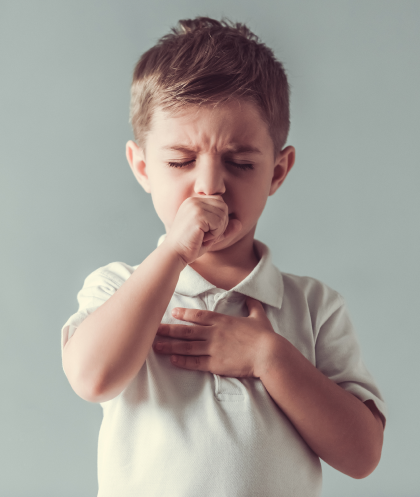
77 Wimpole Street,
London, W1G 9RU


Respiratory Conditions

Sleep disorders in children is a large subject with any number of opinions mostly disagreeing with each other so this is a brief summary of what is agreed.
Sleep is essential for normal functioning. Most of us do not get sufficient sleep and whilst we all know what happens when we don't get enough sleep i.e. increased irritability and reduced patience in all of us, hyperactivity (NOT ADHD) in children, poor learning and retention, increased paranoia in the susceptible and poor quality in physical tasks, what sleep does in humans remains a mystery. The one thing sleep has been shown to do is lay down long-term memory. Adults need on average 9.25 hours of sleep per night and in the US the average amount of sleep has declined by 90 minutes in the past 30 years - I wonder whether that leads to increased gun crime.
In children the mechanics of sleeping is a learnt behaviour the same as eating with a spoon, talking and sitting at table. So children need to learn that one sleeps at night in bed and wakes in the morning and inevitably this takes time. This learning can be reinforced by a consistent bedtime routine every day. In order to avoid sleep disorders in children, the routine of bath, story, snack, tuck in and kiss can be in any order so long as the order stays the same.
In young children, the biggest single issue is recurrent waking. In fact the issue is not recurrent waking at all as all humans briefly wake 5-7 night per night, turn over and go back to sleep, it is not being able to go back to sleep oneself. Any number of books have been written on this subject but the child learning, and being taught to self-settle is what it boils down to. The biggest external cues to sleep is light or the lack of it, so light in the room needs to be a minimum so check for all the lights on TVs computers etc as they are penetrating.
The other issue is room temperature as most bedrooms are too hot and a cool bedroom with warm bedding works far better than the other way round. If a young child has been say rocked to sleep on the sofa in front of the TV or breast/bottle fed to sleep at the beginning of the night, when they wake and are not being rocked or fed, the child will be startled. It is the equivalent of an adult going to sleep in bed and then waking in the garden! In other words, children need to learn that the bath, story, bed routine heralds self-going to sleep and in time they do it themselves in the night.
One trick is to put a well used (so not washed) parental T-shirt in the cot as smell is the most primeval of the senses and is an aid to returning to sleep. Training recurrent ‘not going back to sleep’ with controlled crying and other regimes is well described elsewhere but with all of these systems, the issue is that staying awake has to be far less attractive to the child than returning to sleep, so picking them up, playing, ‘trying to tire them out’ etc is never effective long term. Going in, perhaps a small drink of water only (excluding young babies), patting them briefly, reassuring them but NOT picking up eventually does the trick.
One all too common issue in the fraught area of sleep disorders in children are parents who themselves are tired then argue and disagree about what to do. Whatever the plan of action, both parents have to sit down and agree in advance how it is to be managed and if necessary write it down so that there is no room for doubt at 3am.
Parents often agonise about young children sleeping in their beds. Official guidance is to discourage this for various medical reasons and it must NEVER occur if parents have had any alcohol. It has to be said however that as far as I am aware ‘western’ humans are the only mammals that do not sleep with their young and any visit to a high grade zoo will see generations of gorillas for example having an afternoon nap in one great, steaming pile!
One paradoxical observation is that children are at their most alert and active just before going to sleep in the evening. There is an evolutionary reason for that as before sleeping on the forest/cave floor one had to be sure that it was safe from predators hence that pre-sleep alertness.
Although a sleep disorder in children is fairly common, routine snoring in children is not normal although it always surprises me that parents very rarely report the symptom unless I specifically ask about it. It most commonly occurs between the ages of 2 and 6 years and almost always is due to adenoidal (± tonsil enlargement) blocking the back of the nose leading to snoring. Restless sleeping, reluctance to wake in the morning and breathing pauses (apnoeas) can also be features. Apnoeas lasting more than 20 seconds are a concern. Your child may require a sleep study, and a trial of montelukast and if that fails an ENT referral.
The main sleeping issue in adolescence is going to sleep late then they are tired in the morning and it is a fight to get them to school. Adolescents paradoxically need more sleep than 10-12 year olds but try telling them that! This issue is called a delayed circadian rhythm cueing sleep.
There are two choice of action: one is to gradually drag it back to a normal time typically by 15 minutes per week i.e. no computers, smartphones, TV, IPODS and no lights after a certain time. It can be assisted by a short course of bedtime melatonin.
The shorter, more radical alternative taking a week is to push the circadian rhythm forwards by 3 hours a day. So if ‘Kevin’ is regularly only going to sleep at 2am then the next night it is 5am, then 8am, 11 am etc until one has reached the correct bed time. It takes a half term holiday to complete and total motivation from all concerned but is quick and effective.
Please fill the form below
Suzanne Harvey
secretary
Resources
